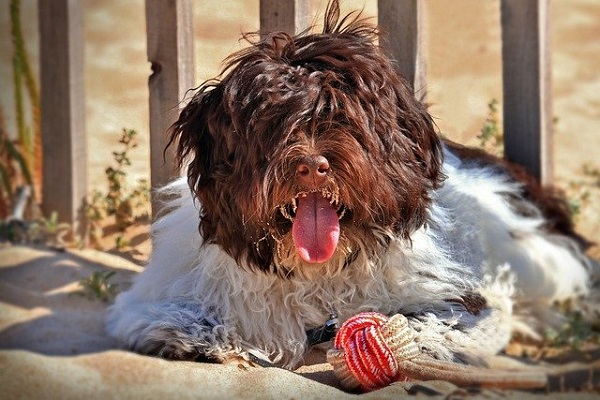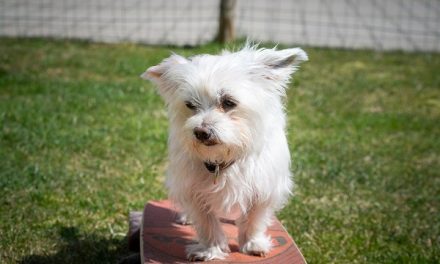When it comes to the dogs you own or want to own, it’s a good idea to know just how long your furry companion will stick around for. We don’t want to bury the lede, so we’ll tell you now that, as smaller animals, Havanese dogs will comfortably live for thirteen to sixteen years. That’s right up there in terms of dog lifespans, so you can be sure that the Havanese breed often live long and fulfilling lives before their time comes.
Knowing a vague number about how long Havanese dogs tend to live is one thing but, if you want to be as responsible and accommodating an owner as possible, it’s best that you learn how they live this long. The lifespan of your dog can be lengthened or shortened by any number of factors, some natural and some based on the lifestyle and quality of life that your pet has.
This means that some of these will be in your control as the dog owner and some not, but we’ll go through all of these below. That way, you can rest assured that you’re making a conscious effort to keep your furry friend around and healthy for longer.
Natural Factors
Personality
Like with most dogs, the Havanese breed has a general personality type that makes it predisposed to dislike certain conditions over others. Though every dog will be different in some ways, Havanese dogs aren’t considered kennel dogs, meaning that they shouldn’t be separated from their owners for extended periods of time.
They’re also easily trainable, which is handy to keep them from certain activities that could shorten or otherwise damage the lifespan of the pet. Proper socialization can help with this, but we have more on that later below.
Not treating your dog’s breed in accordance with its personality traits will result in stress which, just as much in dogs as it is in humans, is the silent killer. Consistent stress in a dog’s life will not only increase the chance of other disorders, again explored below, but it also reduces the life expectancy of your dog outright.
Socialization
Most dogs are incredibly social creatures, Havanese included, so social interactions are key to their continued wellbeing. Fortunately, the Havanese breed is usually easygoing, forming positive bonds with both their human owners and any other compatible pets that are around. By compatible pets, we mean fellow small dogs like Chihuahuas or poodles because they’re not physically imposing and are more socially inclined to bond with your dog.
To ensure that these interactions stay positive, however, requires the dog to be properly socialized and trained. You can do this by avoiding putting the dog in situations where they have to interact with larger and naturally fierce dog breeds, like bulldogs or shepherds. This can make your Havanese uncomfortable, adding to their stress and so shortening their life.
Lifestyle Factors
Hydration
Arguably the most important factor in keeping your dog healthy in the day to day, you should ensure your Havanese is on the right diet once you’ve made sure they’re not stressed in their home environment.
Like any dog, yours will need some water. Havanese dogs in particular will need one glass of clean water a day, at least, though this is a general amount and you shouldn’t worry too much if yours has less from time to time. Just keep your dog hydrated by making sure they always have an accessible water source that’s re-filled as needed.
Dehydration is devastating to dogs, especially the smaller breeds that will suffer the effects of it sooner than others, so you shouldn’t purposely make your dog thirsty to encourage them to drink more. Instead, a consistent drinking option is much healthier. It should also go without saying that forcing your dog to drink when it doesn’t is also just as harmful, to both their body and their attitude.
Diet & Nutrition
Before we get into the dietary requirements of your animal, let’s get some relevant details out of the way first. Your Havanese should average seven to twelve pounds in weight if female and eight to thirteen pounds if male, and they should be between eight and eleven inches tall. Like all animals in nature, the dietary requirements of a dog are dependent on its size. The nutritional requirements for dogs are similar no matter the breed but the size of the dog dictates how much energy they require.
Different breeds may also have food type priorities to get the most out of their diet and work with that breed’s health profile. Havanese dogs should have a diet that prioritizes protein as these small but sturdy dogs should have enough to replace healthy cells, tissues, and organs, as well as build their tiny muscles so they can easily run around with that signature Havanese bounce.
If your Havanese is a puppy, you’ll want to supply it with more protein to support their development. When your dog reaches adulthood, however, they won’t need as many proteins since they only need to maintain their muscle instead of growing larger.
Fat is another important part of the Havanese dogs’ diet since, like the typical small dog stereotype, these dogs can get pretty hyperactive and will need a source for all of this energy.
As for some other handy foods you can look out for, we’d recommend you get food that supports the joints of your dog since this is a common problem area in canines, especially as they age. You’ll want your dog’s musculoskeletal structure to stay healthy long into their lives since it minimizes aging-related problems, prolonging their life even more.
If you need a handy way to deliver a lot of nutrients to your Havanese, you can give them raw milk for some handy fat-soluble vitamins, proteins, and handy minerals like calcium and potassium. Bone broth is also a classic gut-healing remedy for dogs too, and the Havanese breed is no different. Half-eggs and mushrooms are also handy in moderation every few days, since you want to avoid your canine becoming obese.
Sanitation
The cleanliness of your animal can affect its lifespan, too. In the more extreme cases, your dog can get afflicted by blood-sucking fleas or ticks and, as it happens, blood is pretty important to a long and healthy life. These pests can also be vectors for spreading diseases to your dogs, too, and Havanese dogs in particular have a lot of long, silky hair that presents an attractive feeding spot for them.
Try to brush your dog daily to keep these pests away, checking as you do for any signs of pest activity. If you find any, take the necessary action to get rid of them. Regular brushing also prevents tangles.
You can brush your dog very often but don’t wash Havanese breeds too often since this will strip the natural oils from their coat. Havanese dogs are a (relatively) scentless breed of dog, so it shouldn’t be too much of a trouble to keep your friend away from the bath for a fortnight at a time. If your dog is a house dog, or just generally avoids getting messy, then there’s nothing wrong with leaving it longer than two weeks.
Medical Issues
Havanese dogs are vulnerable to a lot of diseases, like most dog breeds. Fortunately, treatment is always available in this day and age. If your dog should have any medical issues, then you can rest assured that there are vaccines and further preventative measures that can prolong the life of your furry friend for longer than what would’ve been possible a decade ago.
Here are some of the common ailments that can strike your Havanese. By learning their symptoms, you can be on the lookout for them and respond faster if any of these complications do arise.
Canine Distemper
The symptoms of canine distemper range from a fever and running eyes to more serious ailments like vomiting and paralysis. The nose and the pads of your dog’s feet will also harden, hence its alternative name “hardpad disease.”
It’s a very contagious disease, so if you see symptoms, you should be isolating your dog and thinking about which animals in your dog’s social life that would have infected your poor pooch. Whilst technically airborne, it’s usually transmitted through food bowls that have been shared by multiple dogs. It hits puppies more often so be wary of this disease if your dog is young.
To treat canine distemper, ensure your dog gets plenty of fluids and take them to a veterinarian. As the old saying goes, prevention is better than cure, so it’s wise to get your dog vaccinated early against canine distemper to avoid these future problems.
Kennel Cough
There are no prizes for guessing what the main symptom of this one is. If your dog is coughing a lot, maybe even for hours on end, then there’s a high chance it has kennel cough. This is an inflammation of your dog’s airways that causes your dog to try and cough out the irritation, not knowing that what they’re feeling is the thickened lining of those airways.
It’s called kennel cough because enclosed dog daycares are the largest vectors for transferring it. As we’ve established, Havanese dogs aren’t kennel dogs, so you shouldn’t be putting them in these institutions anyway if you want to minimize your dog’s emotional distress.
After seeing your vet, you’ll be given antibiotics and cough suppressants to help your dog get over the illness.
Heartworm
This is an infamous disease that causes weight loss, lethargy, and, as it advances, heart disease that leads to death. Heartworm is when parasites invade the heart and attack blood vessels in some of the most important organs in the dog’s body. If you’re in an environment where mosquitoes are common, you’ll want to be on extra alert for heartworm symptoms.
There’s a drastic list of treatments once heartworm is confirmed. It usually involves an antibiotics regimen, steroid treatment, and even arsenic injections if the case has advanced enough. Annual blood testing is the best preventative measure since it can find and eliminate the problem early, otherwise you can apply regular topical shots to your dog to protect it.





